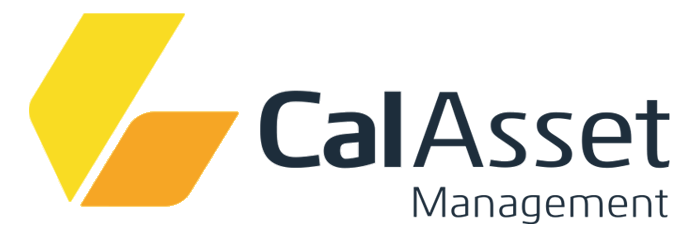In this week's edition:
· U.S. Stocks React Adversely to Escalating Conflict in the Middle East.
· Gold Prices Decline as Investors Anticipate a Stronger Dollar.
· Ghana’s Treasury Auction Records Undersubscription for the 4th Consecutive Week.
· The GSE Financial Stock Index continued its positive momentum, posting a gain of 1.09% w/w and lifting its YTD return to 39.59%
Kindly click to view the full report: Global Market Update - June 23, 2025
AROUND THE GLOBE
· US Fed Keeps Rates Steady
· The Federal Reserve maintained the federal funds rate at 4.25%–4.50% for the fourth consecutive time at the end of its June 2025 meeting, aligning with expectations. Policymakers are taking a cautious approach to thoroughly assess the economic impact of President Trump's policies, especially those concerning tariffs, immigration, and taxation. Officials also mentioned that while uncertainty about the economic outlook has lessened, it remains high. Nevertheless, the Fed still forecasts two rate cuts later this year, with only one quarter-percentage-point cut anticipated in 2026 and 2027.
· BoE Signals Cautious Approach Amid Persistent Inflation
· The Bank of England voted 6-3 to keep the Bank Rate steady at 4.25% at its June meeting, navigating a challenging backdrop of heightened global uncertainty and persistent inflationary pressure. The central bank noted that consumer price inflation is likely to remain broadly at current rates for the rest of the year before easing back toward the target next year. However, it warned of “two-sided risks to inflation,” expressing concern over rising energy prices amid the escalating Middle East conflict and potential trade disruptions from proposed US tariffs. It also noted that underlying UK GDP growth "appears to have remained weak,” while the labor market has “continued to loosen.”
· Eurozone Inflation at 8-Month Low
· Eurozone consumer price inflation was confirmed at 1.9% year-on-year in May 2025, down from 2.2% in April, marking the first time it has fallen below the European Central Bank's 2.0% target since September 2024. This slowdown was primarily due to a significant drop in services inflation, which decreased to 3.2% from 4.0% in April, reaching its lowest level since March 2022. Energy prices continued their decline, falling by 3.6% year-on-year, while inflation for non-energy industrial goods remained steady at 0.6%.
· Eurozone Business Activity Grows Slightly
· The HCOB Eurozone Composite PMI remained unchanged from the previous month at 50.2 in June of 2025, slightly under market expectations of 50.5, according to a flash estimate. The result reflected the sixth consecutive month above the expansionary threshold, yet continued to indicate a muted pace of growth.
· FDI in China Slips 13.2% Despite Surge in High-Tech Sectors
· Foreign direct investment (FDI) in China fell by 13.2% year-on-year to CNY 358.19 billion (USD 49.88 billion) from January to May 2025. The manufacturing sector attracted CNY 91.52 billion, while the services sector received CNY 259.64 billion. High-tech industries saw significant investment, particularly in e-commerce services (146%), aerospace and equipment manufacturing (74.9%), chemical and pharmaceutical manufacturing (59.2%), and medical equipment and device manufacturing (20%). Regionally, FDI from ASEAN countries increased by 20.5%, with notable rises from Japan (70.2%), the United Kingdom (60.9%), South Korea (10.3%), and Germany (7.1%).
GHANA
· Bank of Ghana to Push for 10% lending rate
· The Bank of Ghana plans to overhaul the Ghana Reference Rate to help reduce lending rates to 10% over the next four years. Governor Dr. Johnson Pandit Asiama highlighted that high credit costs hinder private sector growth. The central bank's reforms aim to facilitate expansion without making finance inaccessible to businesses. They believe that a recalibrated reference rate, along with better regulatory oversight and market discipline, will lower borrowing costs and enhance long-term economic resilience.
AFRICA
· Nigeria Inflation Softens for 2nd Month
· Nigeria’s annual inflation rate eased for the second month to 22.97% in May 2025, from 23.71% in the prior month. This slowdown is largely a technical adjustment, supported by favourable base effects and a slight strengthening of the naira, which has helped cap the import costs. Food inflation, the largest component of the inflation basket, remained elevated but continued to decelerate to 21.14% in May from 21.26% in April.
· South Africa Inflation Holds Steady at 2.8% in May
· South Africa’s annual inflation rate held steady at 2.8% in May 2025, matching April’s five-year low. Faster price increases for food and non-alcoholic beverages (4.8% vs. 4.0% in April), housing and utilities (4.5% vs. 4.4%), and clothing and footwear (1.3% vs. 1.2%) were offset by slower inflation in alcoholic beverages and tobacco (4.3% vs. 4.7%), restaurants and accommodation services (1.8% vs. 3.0%), and personal care and miscellaneous services (1.7% vs. 1.6%).
· Senegal Industrial Output Growth Accelerates in April
· Senegal’s industrial production, excluding cotton ginning, surged by 24.9% year-on-year in April 2025, accelerating from a 19.7% increase in the previous month. This marked the strongest growth in three months, largely driven by a sharp rise in output from extractive industries (+82.7%) and, to a lesser extent, manufacturing industries (+4.1%). Within manufacturing, production saw significant increases in refined petroleum and coking products (+260.5%), paper, cardboard, printing, and reproduction of records (+140.5%), as well as chemical, pharmaceutical, rubber, and plastic products (+132.5%).
Sources: Bloomberg, Reuters, Trading Economics
